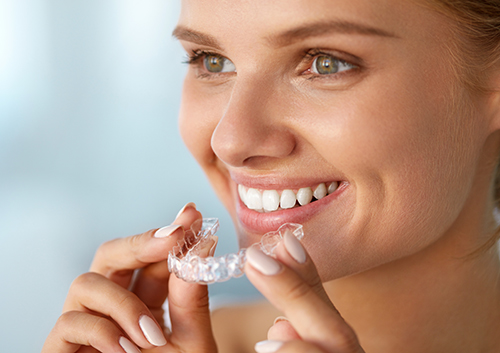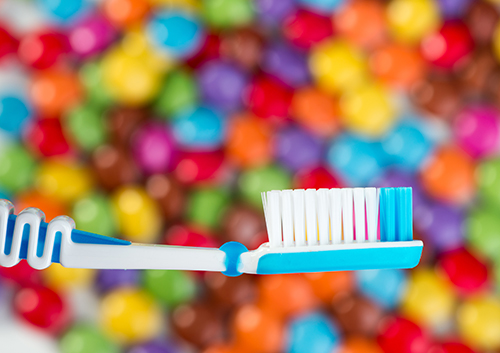Is Invisalign® Right For You?
June 21st, 2019

When patients ask Dr. Dale Scharine and Dr. Alissa Edwards about who benefits from Invisalign clear aligners, the simple answer is this: almost everyone. Unlike conventional braces, they are removable, which makes eating and cleaning your teeth much easier.
They are molded to fit each patient’s mouth and are practically invisible. Because aligners apply less force in straightening teeth than metal braces, the risk of harm to your teeth is reduced.
Benefits to adults
Traditional braces are associated with children and teenagers. Many adults want to have their teeth straightened but hesitate to wear metal braces. They also worry about having to change their diet and not be able to eat the foods they normally enjoy.
If you are an adult who’s considering braces, our team at Elite Smiles Dental will tell you Invisalign aligners is a great option for discreet teeth straightening. Your teeth will be straightened with virtually invisible braces.
The aligners are easily removable when you eat, so you can enjoy any food you normally would consume. You simply clean your teeth normally after eating and you won’t have to worry about getting food stuck in your braces.
If there is a special occasion during which you do not want to have any braces in your mouth at all, you can remove the aligners for up to four hours without causing any damage.
Benefits to teenagers
Dr. Dale Scharine and Dr. Alissa Edwards and our team know that teenagers are often involved in sports and other after-school activities, and generally lead pretty busy lives. If your teen plays a musical instrument, you may be concerned that having metal in his or her mouth will interfere with ability to play. Invisalign aligners avoid the damage that can happen with traditional metal braces.
For sports that require players to wear mouthguards, the expense of specially constructed mouthguards to fit over braces is also eliminated. The aligners can be removed during sports activities and teens can easily wear a mouthguard. Teenagers who play musical instruments simply remove the aligners while practicing or playing in the band or orchestra.
Teenagers routinely have trouble flossing teeth between the wires and brackets of traditional braces, but Invisalign allows for easy dental cleaning. Since Invisalign aligners are removable, brushing and flossing are simpler and more likely to be performed.
For more information about Invisalign or Invisalign Teen® treatment, or to schedule an initial consultation with Dr. Dale Scharine and Dr. Alissa Edwards, please give us a call at our convenient Appleton, WI office!




 Website Powered by Sesame 24-7™
Website Powered by Sesame 24-7™